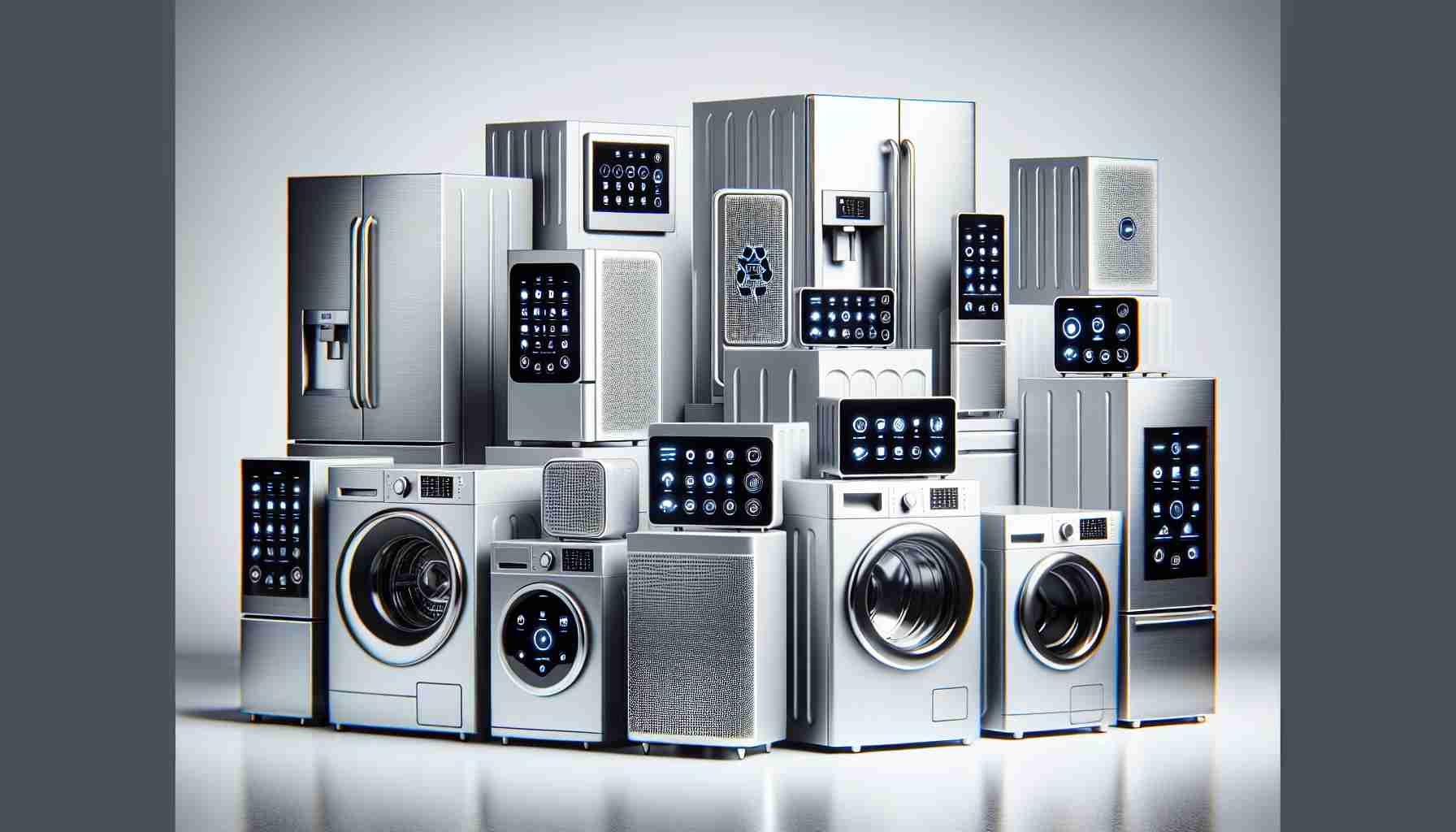Samsung, a leading consumer electronics brand, has introduced a range of bespoke home appliances powered by artificial intelligence (AI), offering a glimpse into the future of connected and sustainable homes. With built-in Wi-Fi, internal cameras, and AI chips, these appliances seamlessly connect and provide convenient home management through the SmartThings Application.
The introduction of bespoke AI allows consumers to customize their choices, benefit from easy controls for all members of the household, and receive seamless diagnosis for their appliances. This innovation not only enhances the user experience but also contributes to greener living by reducing energy consumption.
AI technology extends the longevity and sustainability of the appliances. Users receive notifications through the SmartThings App, alerting them when it’s time to replace the water filter in their refrigerator or the air conditioner’s filter. By incorporating AI, Samsung aims to streamline the management of these appliances and save users time and energy spent on home chores.
Saurabh Baishakhia, Senior Director of Digital Appliances at Samsung India, explains, “With enhanced connectivity and AI capabilities, these appliances revolutionize the smart home experience. Our objective is to strengthen our premium portfolio and increase our share in the premium appliances segment.”
Among the AI-powered appliances are refrigerators, air conditioners, microwaves, and washing machines. The refrigerator features an AI vision camera that can recognize up to 33 food items, suggesting recipes based on the stored items. Additionally, the wider coverage allows users to view the entire refrigerator, including door bins, from anywhere using their screens.
The air conditioner offers a Welcome Cooling function and AI Geo-fencing, enabling users to cool their homes remotely. The microwave personalizes diet recipes, automatically customizing them to a “low-fat” version. Meanwhile, the washing machine learns users’ laundry routines over time, adapting its wash cycles accordingly. It also senses various factors such as load weight and fabric softness to create a custom wash recipe.
Samsung’s Bespoke AI appliances come with SmartThings Energy, allowing users to monitor and control their energy consumption. The appliances optimize energy saving using AI algorithms, resulting in substantial reductions in CO2 emissions.
With the addition of Bixby AI Voice Assistant, users can effortlessly manage their appliances by voice command. Regular software updates ensure that users receive the latest features and added security.
Samsung’s AI-powered appliances not only make daily tasks more efficient but also pave the way for a greener and smarter future in home management.
The introduction of bespoke AI in Samsung’s home appliances reflects the growing trend of connected and sustainable homes. As the consumer electronics industry continues to evolve, AI technology is playing a significant role in transforming the user experience and improving energy efficiency.
According to market forecasts, the global smart home appliances market is expected to reach a value of $92.72 billion by 2025, exhibiting a compound annual growth rate (CAGR) of 14.1% during the forecast period. The rise in smart home adoption, increasing consumer awareness about energy consumption, and advancements in AI technology are driving the growth of this market.
One of the main benefits of AI-powered appliances is their ability to provide seamless home management. Through the SmartThings Application, users can easily control and customize their appliances, catering to the preferences of all members of the household. This level of customization enhances the user experience and simplifies daily tasks.
Another crucial aspect of AI-powered appliances is their contribution to greener living. By incorporating AI algorithms, these appliances can optimize energy usage, resulting in reduced energy consumption and lower CO2 emissions. Notifications through the SmartThings App also help users stay updated on the maintenance needs of their appliances, allowing them to replace filters and perform necessary tasks on time.
In addition to Samsung, other prominent brands in the consumer electronics market, such as LG and Bosch, have also introduced AI-powered appliances. This competitive landscape further highlights the industry’s recognition of the potential of AI in transforming home management.
While AI-powered appliances offer convenience and sustainability, there are also challenges and concerns related to their widespread adoption. Privacy and data security are areas of focus, as these appliances are connected to the internet and collect data on user usage patterns. Manufacturers must ensure robust security measures to protect user information and address any vulnerabilities.
Moreover, the cost of AI-powered appliances remains a barrier for some consumers. As with any new technology, prices are often higher during the initial stages of adoption. However, as the technology matures and becomes more widely adopted, prices are expected to become more competitive, making AI-powered appliances accessible to a broader consumer base.
Overall, AI-powered appliances are paving the way for a greener and smarter future in home management. By incorporating AI technology, these appliances offer personalized experiences, energy efficiency, and enhanced convenience. As the market continues to grow and evolve, advancements in AI and connectivity will further revolutionize the way we manage our homes.
Related links:
– LG Global
– Bosch Home Products
– Market forecast for smart home appliances
